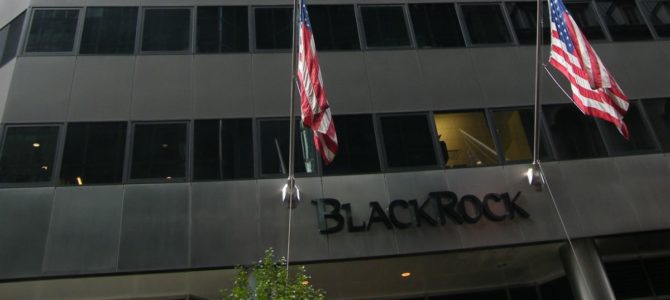
The president of the University of Texas was supposed to be fired last week for insubordination and corruption.
UT President Bill Powers has a problem saying no to politicians who want him to let their unqualified kids in, and he has a problem saying yes to even the simplest requests from his nominal boss, Chancellor Francisco Cigarroa. So it was fitting, in a way, that Powers managed to avoid being fired for refusing orders by simply refusing an order.
Last week, Cigarroa told Powers to submit his resignation by Friday or face a humiliating public dismissal at the Board of Regents meeting today. Powers chose Option C: Keep his job as president for the next school year, then go back to teaching at the law school. Cigarroa gave in, for the third time in the last year, under pressure from Powers’ many friends in the legislature.
The reason it’s been so extraordinarily difficult for Cigarroa to push Powers out—questions of fortitude aside—is the same reason this is more than a weird local story. The admissions process at the state’s flagship school is deeply infected with political influence, and it’s become so obvious that Powers’ backers now resort to a shrugging rationalization: “Everyone does it.”
They may have a point. Everything made secret decays into corruption, from child welfare systems to foreign intelligence courts to the admissions departments of public universities. But if the other schools are as bad as UT, we have a national problem, because UT is letting applicants into its top-ranked law school whose scores on the Law School Admissions Test could be achieved by filling in bubbles at random. I’ve found dozens of UT Law grads whose LSAT scores wouldn’t have gotten them into the worst law schools in the country. And I’ve found dozens of others who have failed the bar exam repeatedly—and wouldn’t you know? They happen to be lawmakers, lobbyists, political donors, and their children.
The Show Trial
Cigarroa found some of the same problems in a preliminary report released two months ago, but hardly anyone noticed at first. The day that report was released—by email, only on request, just before deadline—the story was that the chairman of the Board of Regents, Paul Foster, was calling for the resignation of Powers’s antagonist, a regent named Wallace Hall.
For most of the last year, Hall’s been the bad guy in most press accounts, his allegations of admissions favoritism just proof that he was some sort of maverick on a vendetta against Powers. While most university board members are little more than boosters who enjoy watching Longhorns football from luxury suites on the 50-yard line, Hall has taken his oversight function seriously, inquiring into dozens of areas. When he came across a trove of favor-seeking letters and emails between lawmakers and Powers, he requested copies of all such correspondence. That’s when the Republican Speaker of the state House, Joe Straus, authorized an ad hoc legislative committee to pursue impeachment charges against Hall.
For much of the winter, the committee’s show trial dominated headlines, but it produced nothing substantial. The main complaint was that Hall’s record-seeking had caused the university to make too many copies. It was something like 100,000 pages, although the committee itself needed 150,000 pages of copies in order to denounce Hall. The committee also called for Hall’s criminal prosecution for leaking confidential records—the so-called leak was to a state investigator and his own defense attorney, and the “confidential” records were emails about admitting unqualified favorite sons.
The dilapidated Austin press took a critical view of exactly none of this, not even when one of the committee’s co-chairs wrote his colleagues a letter refuting, point by point, the charges they’d drummed up against Hall. Weirder still, the co-chair took his points verbatim from stories I’d written making fun of all of them. He concluded there were no grounds for Hall’s impeachment, then turned around and voted with his colleagues that there were such grounds, although none of them could decide what they were. Verdict first, charges later—preferably before the hanging.
Three days after that vote, Foster, the chairman of UT’s board, called for Hall’s resignation. He is the swing vote on the nine-member board, and he was sick of all the controversy. He had also decided not to pursue the issue of admissions corruption any further. Cigarroa’s preliminary inquiry was a biopsy of sorts, meant to determine if there was evidence of corruption, and it came back positive.
The Evidence For Corruption
Applicants for admission as a freshman were nearly four times as likely to be admitted as the general population if they had a legislator appeal directly to Powers. A quarter of the politically connected applicants to UT Law were admitted, despite grade point averages and LSAT scores “well below” and “far below” the school’s low-end benchmarks.
Foster’s plan was for Powers to promise not to do any more admissions favors, and to put a “firewall” between the president’s office and the admissions department.
Then I published a pair of data-heavy stories on bar results and LSAT scores I’d been working on for six months, naming quite a few names. Word got around, because lawyers know what LSAT scores of 128, 136, and 137 mean, even if reporters don’t. Anybody knows what it means if you keep failing the bar.
I built a database of bar exam results spanning 2006-13 and totaled the number of tries each grad needed to pass. Of nearly 2,700 UT Law grads, just 197 needed to retake the test. I found 90 who failed it twice. And I found 29 who failed it three times or more.
That group of 29 included Carlos Zaffiini, son of Judith Zaffirini, the Democratic former chairwoman of the state Senate Higher Education Committee; it included Jeffrey Carona, son of Republican state Sen. John Carona, who has donated $31,043 to Zaffirini’s campaign in recent years, in addition to undisclosed sums his company paid her as a communications consultant; and it included Ryan Pitts, son of Rep. Jim Pitts, the House Appropriations Committee chairman. It also included a lobbyist who’d worked for Straus, a legislative director, the former chief of staff for a congressman, the son of a major Zaffirini donor and state Rep. Eddie Rodriguez. There are more when you add in the double flunkies.
Repercussions for Governor’s Race
Cigarroa knows what that means, too, and three weeks ago, he announced a thorough investigation by outside auditors of the university’s admissions practices. Not coincidentally, the school’s admissions director left at the same time for a new job in Michigan. Then he told Powers to get out.
The UT faculty celebrated Powers’ yearlong reprieve, but I think the losers are going to be the school and some of Powers’ political backers. If he had gone, that likely would have been the end of the story. Now he’s going to stick around, and either suffer through the embarrassing revelations coming from the admissions investigation, or seek to obstruct it, just as he obstructed Hall.
As long as the scandal lives on, it’s a threat to any number of politicians, including the Republican nominee for governor, Attorney General Greg Abbott, who took over a related investigation into corruption at the university’s law school foundation more than a year ago, and promptly sat on it. Even the unbrilliant Wendy Davis—his Democratic opponent—may realize what a gift that could be.









